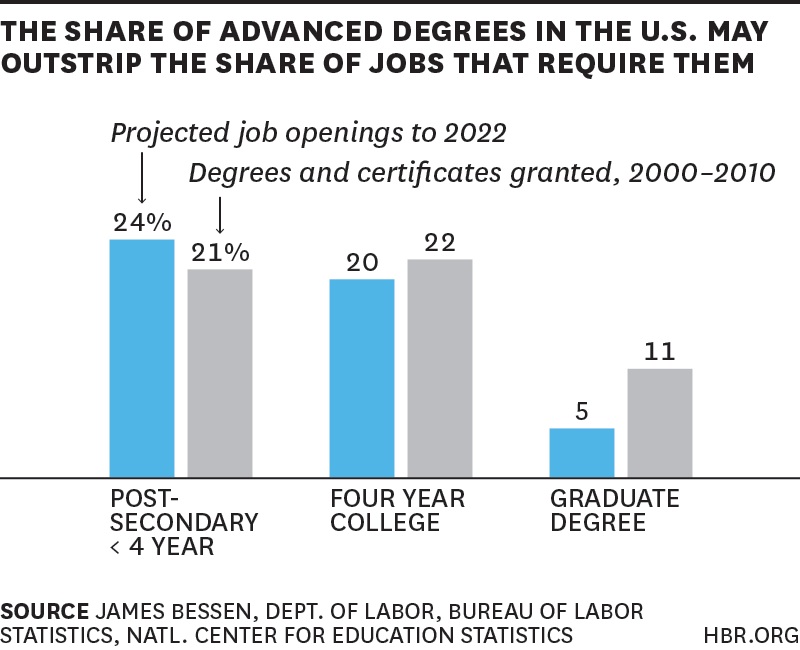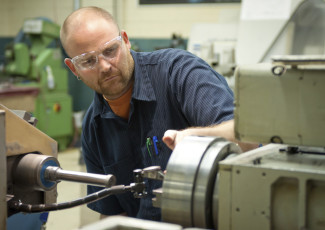Data Matters: Free Community College and the Skills Gap
By AACC Staff
February 12, 2015
Economist sees America’s College Promise filling the middle skills gap.
If enacted, President Barack Obama’s free community college proposal could make higher education a reality for many more students in this country. Another added benefit: It has great potential to close the U.S. skills gap.
Community colleges will be essential in educating the workers who will take the current 26 percent of jobs that require less than four years of postsecondary training and the 16 percent of jobs that require on-the-job training of more than six months, writes James Bessen, economist at Boston University School of Law, in the Harvard Business Review online edition.
He writes: “The chart below shows the educational requirements of the jobs that will be created between 2012 and 2022, compared to the share of diplomas generated over the past decade. While 24% of job openings will require less than four years of post-secondary training, this category only accounts for 21% of the diplomas granted (including both associate degrees and non-degree certificates). By comparison, a larger portion of four-year and graduate degrees are awarded relative to job openings requiring these higher degrees.”

Bessen continues: “The chart shows that middle skill workers are being undersupplied relative to workers with four-year or graduate degrees. Obama’s program might help fix that imbalance, benefiting both employers and employees. Indeed, mid-wage, mid-skill jobs in mature industries have been particularly hard hit by automation, leading to a ‘polarization’ of job opportunities. But new jobs are being created that demand new skills, skills that community colleges can often provide. Free tuition may help bolster economic opportunity for the less privileged.”
To read Bessen’s full article, visit HBR.org.
How is your college connecting students with careers? Tell us in the Comments.














